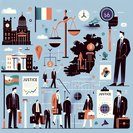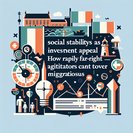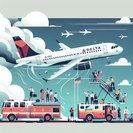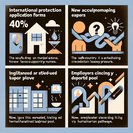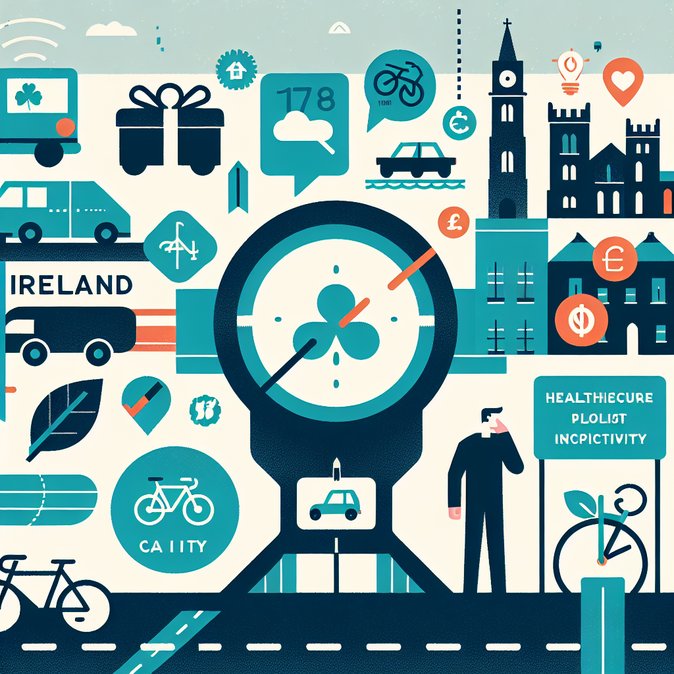
A report published on 30 October 2025 by the Irish Heart Foundation and University College Dublin calculates that physical inactivity—driven in large part by Ireland’s reliance on private cars—now adds €1.1 billion per year to healthcare spending and lost productivity. Researchers analysed hospital-episode statistics, chronic-disease prevalence and commuter-behaviour data to quantify the burden of sedentary travel choices.
Despite record funding for greenways and cycle lanes, 58 percent of journeys under two kilometres are still made by car. The study links this behaviour to rising rates of Type 2 diabetes, cardiovascular disease and musculoskeletal disorders. If current trends continue, inactivity-related costs could exceed €1.5 billion by 2030—equivalent to the annual budget of the Department of Transport.
The authors urge Government to accelerate planned Active-Travel infrastructure, including the Dublin Metropolitan Cycle Network and Safe Routes to School programme, and to introduce employer tax credits for bike-to-work schemes. They also call for mandatory “15-minute city” assessments in local-area plans, echoing measures already adopted in Paris and Barcelona.
For global-mobility practitioners, the findings have practical implications: multinationals are increasingly asked to track Scope 3 commuter emissions and to demonstrate employee-wellbeing initiatives. Companies with large Dublin campuses may face stakeholder pressure to subsidise e-bike fleets, enhance shower facilities or stagger start times to align with new high-frequency bus corridors.
Irish insurers have welcomed the report, noting that reduced car dependency could trim accident claims and absenteeism. Meanwhile, travel-policy consultants predict that future corporate-relocation packages may include allowances for cargo bikes or public-transport season tickets rather than car-parking permits as Ireland moves toward a “mobility-as-a-service” model.
Despite record funding for greenways and cycle lanes, 58 percent of journeys under two kilometres are still made by car. The study links this behaviour to rising rates of Type 2 diabetes, cardiovascular disease and musculoskeletal disorders. If current trends continue, inactivity-related costs could exceed €1.5 billion by 2030—equivalent to the annual budget of the Department of Transport.
The authors urge Government to accelerate planned Active-Travel infrastructure, including the Dublin Metropolitan Cycle Network and Safe Routes to School programme, and to introduce employer tax credits for bike-to-work schemes. They also call for mandatory “15-minute city” assessments in local-area plans, echoing measures already adopted in Paris and Barcelona.
For global-mobility practitioners, the findings have practical implications: multinationals are increasingly asked to track Scope 3 commuter emissions and to demonstrate employee-wellbeing initiatives. Companies with large Dublin campuses may face stakeholder pressure to subsidise e-bike fleets, enhance shower facilities or stagger start times to align with new high-frequency bus corridors.
Irish insurers have welcomed the report, noting that reduced car dependency could trim accident claims and absenteeism. Meanwhile, travel-policy consultants predict that future corporate-relocation packages may include allowances for cargo bikes or public-transport season tickets rather than car-parking permits as Ireland moves toward a “mobility-as-a-service” model.
